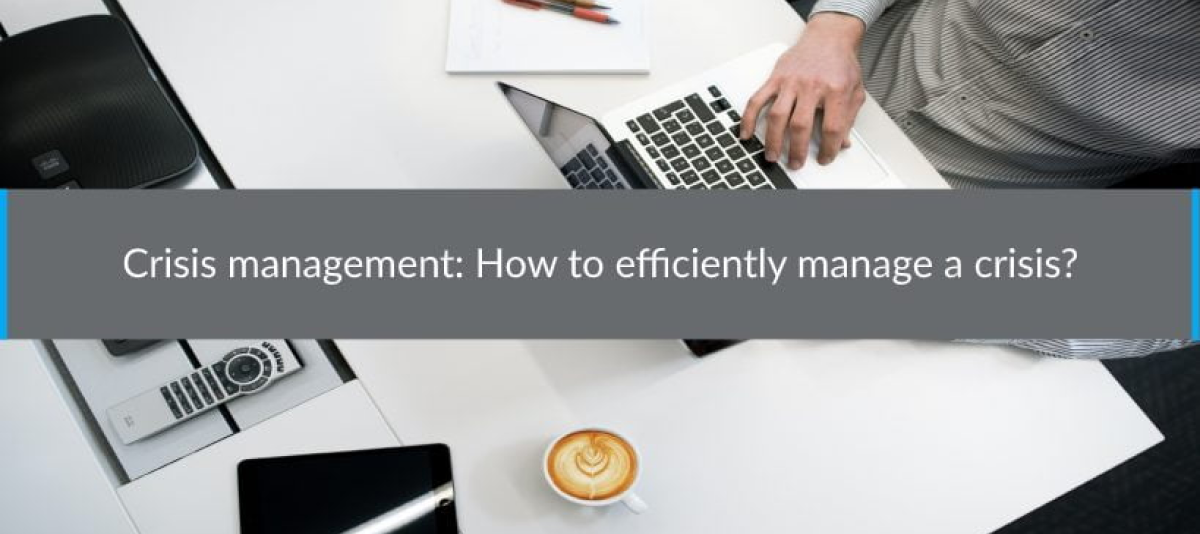Crisis Management
How Crisis Management Can Change Your Business
Crisis management is the process of preparing for and managing any disruptive or unexpected emergency situations that affect your business, stakeholders, employees, customers, and revenue. Crisis management is an important component of public relations. If your business faces a crisis of any kind and isn’t equipped with a crisis management plan detailing how you’ll handle the situation, it’s likely you’ll experience serious and long-lasting consequences. These consequences might be related to various legal, operational, and public relations issues. Depending on the extent of the damage, a crisis situation could even put you out of business.
Simply, put all businesses should have a crisis management plan in place to be prepared for any unplanned event and prevent long-term damage from happening as a result.
Examples of Crisis
 Financial crisis
Financial crisis
 Acts of malevolence
Acts of malevolence
 Technological crisis
Technological crisis
 Misplaced management values
Misplaced management values
 Personnel crisis
Personnel crisis
 Human-made disasters
Human-made disasters
 Crises of confrontation
Crises of confrontation
 Acts of deception
Acts of deception
 Organizational crisis
Organizational crisis
 Management misconduct
Management misconduct

Benefits of Crisis Management for your organization
Creating an effective crisis management helps an organization to employ skillful planning, mitigation, and a proactive response to prevent a crisis entirely, limit its severity and duration, or turn it into an opportunity. Furthermore, the importance of effective and successful crisis management appears not only in sparing the organization from large losses or collapse, but also in returning the organization to a level of equilibrium before the crisis. Preparing for crisis helps organizations recover quickly and smoothly from unexpected events ensuring, and gains many benefits, including:
 Protection of assets
Protection of assets
 Improves organization Morale
Improves organization Morale
 Reduced downtime
Reduced downtime
 Protection of reputation
Protection of reputation
 Reduced financial losses
Reduced financial losses
 Define how the plan should activate
Define how the plan should activate
 Identify More Potential Threats
Identify More Potential Threats
 Set out a clear chain of command
Set out a clear chain of command
 Create A Culture of communication
Create A Culture of communication
Stages of Crisis Management
While it is important to identify risks and plan ways to reduce these risks and their effects, it is equally important to establish monitoring systems that can provide early warning signals for any crisis that can be anticipated. There are three general stages in the monitoring systems :
Pre-Crisis
Develop and practice ways to respond to various crisis scenarios
 Identify risks and plans for ways to minimize those risks
Identify risks and plans for ways to minimize those risks
 Establish monitoring or early warning systems
Establish monitoring or early warning systems
 Develop crisis response plan
Develop crisis response plan
 Identify someone to act as a crisis manager
Identify someone to act as a crisis manager
Crisis Response
Execute the organization’s crisis response plan
 Crisis management team training
Crisis management team training
 Crisis manager communicates with employees and the public
Crisis manager communicates with employees and the public
Post-Crisis
Review, adjust, and update the response plan for the future
 The crisis manager continues to meet with the crisis management team
The crisis manager continues to meet with the crisis management team
 Revisit the crisis response plan to evaluate and revise it if needed
Revisit the crisis response plan to evaluate and revise it if needed
